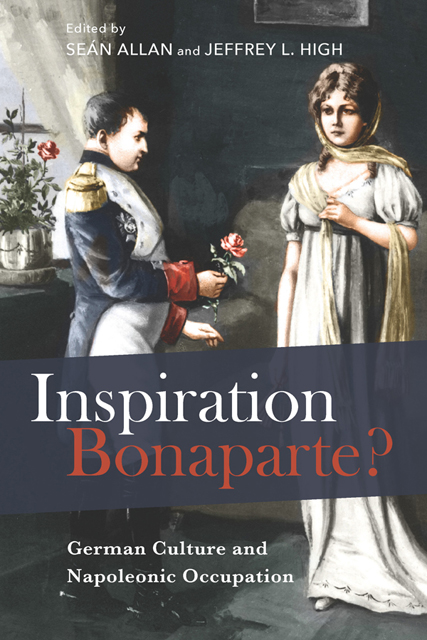11 - Napoleonic Occupation and the Militarization of the Sciences: The Case of Johannes Scherr and the Zurich Polytechnic
Published online by Cambridge University Press: 04 January 2024
Summary
The Napoleonic Age is marked not only by conquest but also by the transfer of knowledge, laws, and institutions to the states occupied or created by Metropolitan France. One novel kind of institution adopted in the course of the “defensive modernization,” the term used by social historian Hans-Ulrich Wehler to describe a raft of reforms of the German-speaking lands, was the polytechnic institute, the first of which had been established in Paris during the Terror of 1794. The École Polytechnique was created to supply the First Republic with the engineers and technicians it desperately needed to build up a national infrastructure. Napoleon Bonaparte militarized the École Polytechnique in 1804, and polytechniciens spearheaded his Egyptian Campaign. Many German states adopted the new institutional model with polytechnic universities founded in Berlin (1799 and 1821), Prague (1805), Graz (1811), Vienna (1815), Karlsruhe (1825), Munich (1827), Stuttgart (1829), and the largest, most influential, and illustrious of these, the Zurich Polytechnic (1855), now known as the ETH.
The ETH, the world-leading technical university regarded today as Europe’s equivalent of MIT or Caltech, had its origins in the Napoleonic Age, and specifically in the French-controlled Helvetic Republic of 1799–1803. It was only in 1855, following the establishment of a unified Swiss federal state in 1848, that the Zurich Polytechnic came into being. Werner Kaegi, the biographer of Jacob Burckhardt, who taught Art History at the Zurich Polytechnic from 1855 to 1858, offers the following description of the institution:
Gewiß stellte diese neuartige Hochschule so etwas wie ein Enkelkind der Revolutionsideen dar. Ihr großes Vorbild, die Ecole polytechnique in Paris, war noch eine Schöpfung der Schreckenszeit gewesen. Und etwas vom Geist der terribles simplificateurs, die ebensowohl Jakobiner wie napoleonische Offiziere sein konnten, lebte in der gesamten europäischen Bewegung, von der die technischen Hochschulen getragen waren. Burckhardts eigener Schwager, der Architekt Melchior Berri, hatte sich als Kind im Anblick der napoleonischen Armeen dazu entschlossen, Brückenbauer und Ingenieur zu werden; er hatte seine Ausbildung in Karlsruhe und Paris gesucht.
[Certainly, this novel institute of higher education represented something like the grandchild of the ideas of the French Revolution. Its great model, the École polytechnique in Paris, was a creation of the Terror. And something of the spirit of the terribles simplificateurs [terrible simplifiers], who might just as well be Jacobins or Napoleonic officers, lived on in the European movement that animated the technical universities.
- Type
- Chapter
- Information
- Inspiration Bonaparte?German Culture and Napoleonic Occupation, pp. 237 - 258Publisher: Boydell & BrewerPrint publication year: 2021



